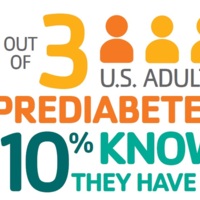Browse Exhibits (3 total)
Keith Rodgers, Natalie Brooks | Establishing the Audiological Role in Diabetes Treatment through Interprofessional Community-Based Diabetes Prevention Program

The goal of this project is to highlight the role of audiologists as a part of diabetes prevention education. Through a team-based approach, the CDC’s nationally-recognized Diabetes Prevention Program (DPP) was offered to interested participants for 16 weeks. The sensory organization test (SOT) was administered to participants at the beginning and end of the program. Any data collected suggesting that participants using the DPP to improve their overall health and health beliefs will also improve their balance would indicate that audiologists can be considered facilitators of this program and work regularly with prediabetic and diabetic patients.
Faculty Mentor: Dr. Blair Mattern, Au.D., CCC-A
Department of Speech Pathology and Audiology
Graduate
Mariah Grange, Lauren Wake | Infant Hearing and Postpartum Depression/Anxiety Screening: An Inter-Professional Approach

Abstract: Postpartum depression (PPD) is a condition that people know little about. One in every seven women experience PPD postnatally. Health professionals and family members may be unaware of specific signs, symptoms, red flags, and risk factors that occur with PPD. In the United States, mothers do not usually see their primary doctor until about six weeks after giving birth. This means that for many of these mothers with PPD, they could potentially be going up to six weeks without receiving any care for their depression. Before COVID-19, our original study was to identify mothers who may be experiencing PPD during their infant's follow-up hearing appointment, and guide them to seek help. The second goal was to educate other health professions on the importance of screening mothers for PPD. Due to COVID-19 we continued with the Inter-Professional Education Event (IPE) portion of our original project, which included other professions in the College of Health.
Faculty Mentor: Dr. Lynn Bielski, Ph.D., CCC-A
Department of Speech Pathology and Audiology
Graduate
Mitchell Kissick, Anthony Milesi | Noise Induced Hearing Loss in Recreational Firearm Users

Recreational firearm users are exposing themselves to prolonged and repeated sound intensity levels that are considered dangerous to human hearing. While many shooting ranges and gun clubs require shooters to wear hearing protection while shooting is going on, often the type of hearing protection devices appropriate to the sound levels shooters are exposed to are not clear. Another consideration is that while someone may use hearing protection devices (HPDs) while at shooting ranges or gun clubs, they may be less likely to do so on their own property. This study sought to determine what attitudes of local recreational shooters are towards hearing protection devices and noise induced hearing loss, as well as to determine if there were differences in the attitudes of different age groups through the use of a survey. Another goal of this study is to use information obtained from survey responses to aid the researchers in catering hearing conservation information for shooters that is more finely focused on local attitudes and any adjustments that may need to be made to these attitudes. The hearing conservation information will then be distributed to local shooting ranges and gun clubs, as well as through social media. In general, survey responses indicate that there are some differences between age groups, though further research is needed.
Faculty Mentor: Dr. Lynn Bielski, Ph.D.
Speech Pathology and Audiology
Graduate
